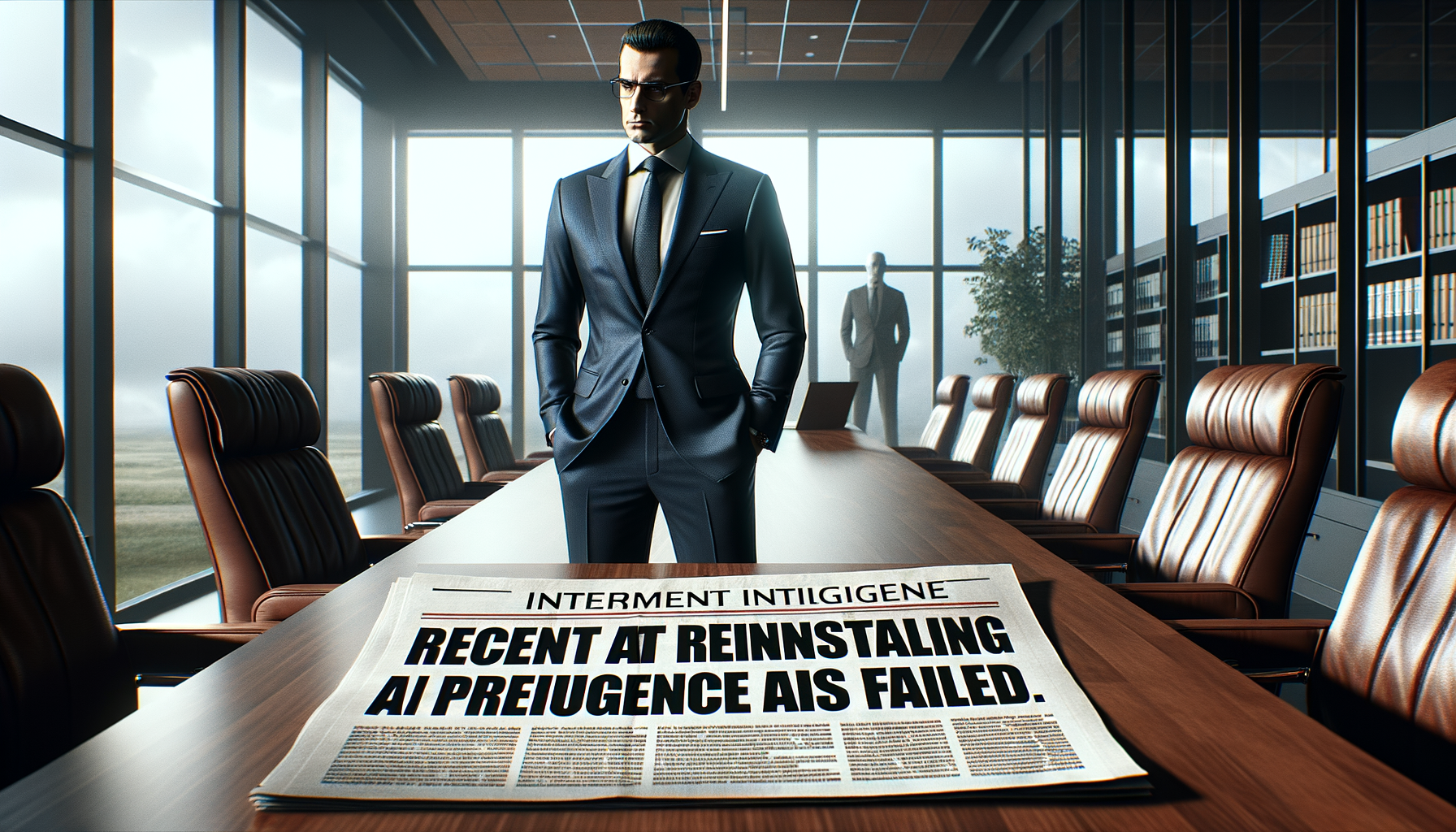
Can AI Automate CEO Duties? Insights from a Recent Discussion on X (formerly Twitter)
In a world where technology is rapidly evolving, it’s no surprise that discussions around the automation of leadership roles are taking center stage. A recent post on X (formerly known as Twitter) by a prominent figure, Shear, has sparked an interesting conversation: Can most CEO duties be automated with AI? This blog post delves into the possibilities and implications of AI stepping into executive shoes.
Understanding the Role of a CEO
Before we can assess the potential of AI in automating CEO duties, it’s crucial to understand what a CEO does. The Chief Executive Officer is typically responsible for making major corporate decisions, managing the overall operations and resources of a company, acting as the main point of communication between the board of directors and corporate operations, and being the public face of the company.
These responsibilities require a blend of strategic thinking, decision-making, leadership, and communication skills. The question is, can AI replicate these human attributes effectively?
AI and Decision-Making
Artificial intelligence has made significant strides in decision-making processes. AI algorithms can analyze vast amounts of data to identify patterns and predict outcomes, which can be incredibly useful for strategic planning. For instance, AI tools like IBM Watson are already being used to assist in data-driven decision-making.
AI in Operations Management
When it comes to managing operations, AI systems can optimize supply chains, streamline processes, and even predict maintenance needs for machinery. These capabilities can greatly enhance operational efficiency, which is a key aspect of a CEO’s role. Products like Supply Chain Management Software are incorporating AI to revolutionize how companies handle logistics.
AI and Communication
Communication is another core duty of a CEO. While AI has not yet mastered the emotional intelligence and persuasive abilities of a human leader, chatbots and virtual assistants are becoming increasingly sophisticated. They can handle inquiries and provide information with a growing level of nuance. This is evidenced by the development of AI communication tools such as Google Assistant.
AI as the Public Face of a Company
Being the public face of a company is perhaps the most challenging aspect of a CEO’s role for AI to replicate. The ability to inspire trust, display empathy, and build relationships is deeply rooted in human interaction. While AI can create realistic avatars and even simulate speeches, the emotional depth and authenticity of a human CEO cannot be easily duplicated.
The Future of AI in Leadership
The idea of AI automating CEO duties is not without merit, but it’s important to recognize the limitations. While AI can augment certain aspects of a CEO’s role, particularly in data analysis and operational efficiency, the human touch in leadership is still irreplaceable. AI can serve as a powerful tool for leaders, but it is unlikely to fully replace the nuanced and complex role of a CEO in the near future.
As AI continues to evolve, the partnership between human leaders and AI will become more crucial. Books such as “Human + Machine: Reimagining Work in the Age of AI” explore this symbiotic relationship and provide valuable insights into how CEOs and AI can work together to drive business success.
Conclusion
While the automation of CEO duties by AI is a fascinating concept, it remains a topic of debate. AI has the potential to transform many aspects of leadership, but the unique capabilities of human CEOs—such as emotional intelligence, ethical judgment, and personal charisma—remain beyond the reach of current technology. As AI tools enhance and support the decision-making process, the human CEO will continue to play a pivotal role in guiding companies towards a successful future.
For CEOs and business leaders looking to stay ahead of the curve, embracing AI and learning to work alongside it will be essential. The future of business leadership is not about replacement, but about the empowerment and augmentation of human capabilities through intelligent technology.
Stay Informed and Prepared
For those interested in exploring the intersection of AI and leadership further, consider reading materials such as “Leadership in the Era of Artificial Intelligence” or attending seminars and workshops on AI in business. Keeping informed will ensure that you are prepared for the evolving landscape of corporate leadership in the age of AI.